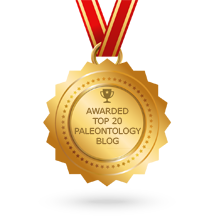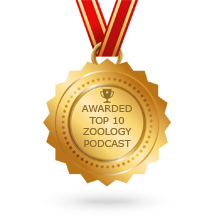Browsing the "Quaternary" Category
The Quarternary period is a division of earth’s history spanning from around 0.05 million years ago to the present, and during which the earth has been subject to a series of glacial and interglacial phases. A major extinction of large animals in North America began in the Quaternary during which sloths, mammoths, sabre-toothed cats, horses, camels and cave bears were wiped out. The end of the Quaternary is characterised by profound changes to the global environment brought about by human activity.

Published on March 20th, 2025 | by Hady George
Mammoths, sabre-toothed cats, and giant ground sloths may be among the most iconic animals of the ice age, but the diversity of life during this time in Earth’s history extends well beyond them and includes one [&hellip... Read More →

Published on July 23rd, 2024 | by David Marshall
We're off to Cerney Wick to conduct some Pleistocene/Jurassic fieldwork in this special episode... Read More →

Published on October 25th, 2023 | by David Marshall
We're granted exclusive access to this new Netflix documentary... Read More →

Published on October 8th, 2023 | by David Marshall
We're joined by "neckspert" Dr Ryan Marek to explore the evolutionary significance of bird necks... Read More →

Published on May 15th, 2023 | by David Marshall
Dr Richard Laub spent 30 years leading the Byron Dig. He joins us to summarise it all in just 2 hours. ... Read More →

Published on April 20th, 2022 | by David Marshall
We hang out with the sloths of Hispaniola, looking for new species hiding within Dr Robert McAfee's measurements... Read More →

Published on January 16th, 2022 | by Elsa Panciroli
Prof Christine Janis discusses her illustrious career and we take a close look at sabre-toothed marsupials and giant kangaroos... Read More →

Published on April 15th, 2021 | by David Marshall
We look at rates of evolutionary innovation in crocodiles through time with Dr Tom Stubbs... Read More →

Published on February 15th, 2021 | by David Marshall
Dr Larisa DeSantis teaches us the methods used to determine what Smilodon was eating... Read More →

Published on November 1st, 2020 | by Liz Martin-Silverstone
Dr Jacquelyn Gill talks about how Pleistocene palaeoecology can inform us about future ecological change... Read More →






















